Milk Makeup was co-founded by women, so it is in our DNA to uplift, support, and champion women every day. Still, there's no better time than Women’s History Month to really drive the point home. In the spirit of the occasion, our DEI Council hosted a panel at Milk Makeup HQ, moderated by Senior Editorial Director Lindsay Schallon and Community Manager Blossom Brown.
The theme was storytelling, so we tapped three women whose professional lives have focused on telling stories relevant to women from all different walks of life. They also shared stories of their personal journeys, career advice, advocating for yourself, and the conversations women are having today around their quality of life, both personally and professionally.
We spoke with Anastasia Garcia, Commercial Photographer; Danica Lo, Contributing Editor at Fast Company; and Arieana Jose, a Get It Fellow who works at Milk Makeup. Here’s how the conversation unfolded.
Lindsay Schallon: Before we kick off the discussion, I’d love to have our panelists introduce themselves and talk a little about what they do.
ANASTASIA GARCIA: I’m a fashion photographer and a body positive activist. I’ve spent the last 13 years using my photography as a way to challenge the destructive beauty standards I grew up in during the ‘90s and early 2000s. I focus on celebrating different body types and different identities, and creating images that will empower people instead of destroy them.
DANICA LO: I'm currently a contributing editor at Fast Company, and I am also a digital strategist. I run my own consultancy where I work with a lot of different brands across the board from Pottery Barn to Milk Makeup. I've worked with Tattooed Chef and I'm working with Nick Adler, who's Snoop Dogg's manager, on a vintage digital wearable project. I just flew back from Hong Kong last year. I was working for Tatler across Asia and previously I was Digital Editor at Food and Wine, WD, and Epicurious. I started my career in 2000 as a plus size model.
ARIEANA JOSE: I am a Milk Get It Fellow. In partnership with The Center, I've been doing LGBTQ+ advocacy work for about five years. I have created and facilitated workshops, presented during GSA summits, and hosted and emceed the first annual Youth Summit. I did all this to spread awareness about the LGBTQ+ community and how we can end discrimination and mistreatment as a whole.
Blossom Brown: The theme of this panel today is storyelling, so I would love for us all to speak to why is that important and how you approach intersectionality in the work you do?
AG: I kind of touched on it already, but it's important to me because growing up, I felt so othered for many different reasons. It's important to acknowledge the way media and culture informs young people, in particular, on how they fit or don’t fit into our society. When we're not mindful of what we're putting out, the message that it has can be quite damaging or even violent. I definitely wanted to change that narrative for other people using my photography, but I also wanted to do it for myself.

I didn't want anyone else to suffer, but I also knew that I couldn't keep creating imagery that was impacting others the way that impacted me. If I'm going to talk about any kind of diversity, of body diversity, it's important to focus on intersectionality and not just focusing on plus-sized bodies—although that's important, too. Focus also on trans and Black plus-sized people. Make sure that my imagery is a place where as many people as possible can look at and feel celebrated, welcome, and empowered.
DL: Storytelling is one of the most important things. Without storytelling, you would have nothing to watch or read—everything would just be "here's a thing." The end. I've always been really interested in the concept of personhood—what makes somebody an individual and all that nuance. That's a lifelong obsession I really take into consideration when it comes to staffing.
When I got to the point in my career where I became privileged to build my own team, I thought of the best teams that I had been on. They were always really well-rounded teams. Every single person brings something different to the table. I learned that from one of my role models who has been my boss twice.
She showed me that building diverse teams really enhances your organization. If you close your eyes and think about what a Vogue girl looks like, there's an image—same for every different media organization. For a long time, people were hiring people that look like them, act like them, and have the same background that they had. It was almost like intentionally putting on blinders.
That's why legacy media is still the way it is, because there's so many people left to advocate for. I sat on Zoom calls for two years where executives go on and on and on about DEI [diversity, equity, and inclusion]. Then you’ll go through eight cycles of editorial interns, and everyone looks the same and comes from the same small, private elite colleges. If you don't foster and nurture talent from a junior level, you get into this terrible cycle. You have to break it from the beginning to really fix the underrepresentation. Once you recognize it and become cognizant of it, you can really make those changes.
Being aware of the greater issues that exist in the world and not letting them slip through the cracks is a part of how to be cognizant of what affects us as individuals. Let's say I'm in an environment where I feel like it’s not welcome for people of all ethnicities. It's necessary for me to advocate for that, create space, or use my spot in that environment to create belonging.
That has always been very necessary, because the reality is everyone has or has had some sort of privilege, whether or not they’re aware of it. I have a lighter skin color, so I have the privilege of walking into spaces that trans women with darker skin tones cannot work in or are not allowed to even try to apply for. I do my due diligence to advocate and make sure that they feel like they are capable of getting that position.
LS: Throughout history, women have had to be our own advocates. I would love if each of you could share an example in your own life of where you've really had to advocate for yourself.
AG: My first job out of college was with Amazon.com. They hired me to launch a fashion brand called MyHabit, a flash sale website. A few months in, the company was deciding on launching their plus size brand. I was 22 years old, so the people that were working with me had so much more experience than I did.I'll never forget the producer saying "Oh well, we don't have a plus size model. We'll just hire thin models and pin all the plus size clothes down to fit them." I remember inadvertently just kind of screaming and being like "No!" It was like a scene from a movie where everyone kind of slowly turned around.
I expected my boss to say something like, "Oh, you're just a kid, you don't know what you're talking about," but instead, he asked why I said that. Why did I have such an impassioned response? I explained to him the psychology of being a fat woman and how you just can't shop looking at proportions. Again, I thought that he was going to be dismissive, but he looked at me and was like, "Okay, you're handling this launch, you're handling the casting, you're shooting all the editorial when it comes. Bye!"
It was a really empowering experience for me, and it was the first time that I realized not only could my experiences as a woman, as a fat woman, inform my work, but they should, and they had to. That was the first time that I really got the sense that I had this responsibility that if I was seated at this table, I had to use this opportunity to speak up for people who weren't there to speak up for themselves.
Up until that point, I wanted to be a fashion photographer and I knew that fashion imagery looked a certain way. I thought that in order to be successful, I had to perpetuate that kind of imagery. This is the first time that I realized that I didn't, I shouldn't, and actually I wasn't okay with it. I'm glad that in the moment I advocated for not just myself, but for other women who I knew deserved better.
DL: I want to recognize how hard it is to advocate for yourself in the workplace. Even if you do it in the most diplomatic way that is aligned with every company policy, no one is immune. In my experience, there's almost no way to advocate for yourself in the way that legacy media has been, without somehow damaging your relationships within the office in the long run.

Later in my career, I started to find different ways to advocate for myself. The thing I found the most effective is a two-pronged approach. One, leverage your strongest relationships in the office and ask someone to co-advocate for you on your behalf. Sometimes having somebody who you trust, who's your ally, who also is just a third party that can advocate lands a little bit more softly. It feels a little bit less personal to the person that you are advocating to.
I'm not a screenwriter, but there's a rule in screenwriting that when you're writing for a character, that action is the character. Instead of saying something, do something that can be self-advocacy. Something that I've done myself is leveraging relationships in the office while changing the approach to a problem and finding a different route that can lead to a solution, or sometimes restructuring.
And sometimes, leaving a job is the best act of advocacy you can do for your own well being, but I think that's a last resort.
AJ: I feel like I'm always advocating throughout life and in the workplace. It's always scary initially, especially when the decision is the other person’s or administration's. You're always worried how they're going to respond. My priority is to be authentic to myself.
And let's say that you advocate for yourself and they reject it or their response is that they cannot accommodate you—whatever you do moving forward is up to you. Regardless, the other person is going to have a reaction, and it may not fall in line with what you want, but your actions are up to you.
Something else to remember: When people advocate for themselves, make sure that we’re not taking it personally or as some kind of attack. I have had people who are afraid to come to me when they need to talk about something, and I think that we all need to receive people’s concerns with love and grace, even if we disagree or it seems challenging. Part of advocating for ourselves is also advocating for others and setting up safe spaces so that other people can feel empowered to do that.
BB: I think advocating for yourself is something that can be scary and we have to learn how to do it, but it takes so long to be able to do that. Cultivating the people who will be allies to you, who will also speak on your behalf is so important. We might come to a space being like, “Oh, I need changes based on the lived experiences I hold and the identities I hold.” For me, it always comes back to all systems of oppression intersecting to help each other.
So we want to make sure that wherever possible, we're trying to advocate for anybody holding any identity that's marginalized in society, and cultivate doing that with people around you.
LS: Danica, I'm going to start this question with you because you were and still very much are one of my mentors. I would love to know what advice you have for young women who are seeking out mentors?
DL: Back when we started, I think that mentorship was the hottest thing. You couldn't open a website without reading something about how to find a mentor or how to network. One thing that I never read in any of these published pieces was that finding a mentor and networking is literally just getting people to like you. They would write "print out business cards, and go to cocktails," don't do that. That's the key. The key to good mentorship and relationships is that they are built on friendships that are built on mutual respect. It's very much about finding the mentor that actually likes you and that you actually like.This is something I said at a Teen Vogue summit in 2011—I think I actually stole this line from Estée Lauder—"the thing that makes you different is the thing that makes you special." If you wedge yourself into something you think you need to be, that doesn't matter. You want them to like you for you and being authentic is the most important thing.

BB: I love that so much! Being authentic to yourself is so important, so thank you for that. Unfortunately, there's an alarming rise in mental health concerns among young women today. To paint that picture a little bit more, nearly 3 in 5 teen girls say that they felt persistently bad or hopeless. Another recent report found that there's been a rise in quarter life crisis among young women in their 20s. So Arieana, as a young woman, in your opinion, what can we do as an organization also individually to help support young women?
AJ: As an organization, being able to create an environment that makes adequate space for people of all ages is so important. Do your best to find out what connects with young women and makes them feel safe to work in an environment. Do you research to find out what is “in” and what applies to women today.
Understanding why so many young adults feel hopeless is important. A lot of young people are more aware and are dealing with trauma. Everyone has to deal with their environment, but they should have the tools to walk away from it if need be. A young person who lacks experience or doesn’t have the resources to provide for themselves won’t be able to walk away or seek out those resources if they aren’t supported. Specifically in minority groups, there’s a lot of generational cycles that keep us down. I would like to say my generation understands how to advocate for ourselves, and we know what to and what not to put up with. Still, there is a lack of support and resources that can help us.
LS: The past few years have been really difficult for all women, especially women who hold additional identities that further marginalize them in society. I'm curious to know what conversations have you all been having personally, among your friend groups? What are the things that are simmering down below that we don't always talk about, but they're affecting us every single day when we come to work?
AG: There's so much going on. One in four women will experience sexual assault and the rate of rape has gone up, particularly for young women. My friends are talking about not only the fact that we just aren't safe, but then I have been spending a lot of time in Florida with my parents, and Florida's horrifying right now. The anti-abortion legislation that's going on is destructive and violent. I think about my friend who's pregnant currently in Florida, and what would happen to her if her pregnancy went wrong and her life is in danger. Or if the fetus’s life is in danger—what would that mean for her? That's a terrifying space to exist in. I look at what's happening with the women in Iran and I can't not have an overwhelming response to it.We are not safe, but we are supposed to show up to work every day. I think that we all need to have more grace with each other and we need to really support each other and rally together. It's a dangerous time for women and we kind of grew up thinking we're past this, but it's getting very much 1950s. That paired with the increase in LGBTQ+ hate and racism that we experience or bear witness to.
I think we especially need men to show up for us. We need them to look at their own issues. Look at masculinity, how it's not creating safe spaces for women, for trans women, for anyone who is not welcomed in a patriarchal system.

DJ: The thing that I see a lot that emits all this public discourse has happened in the past few years since 2020. In 2023, the media is publishing and putting things out there, pretending they don’t know what they’re doing. The idea of right and wrong has somehow flip flopped. Now there's an obvious, glaring, willful ignorance about everything. The sheer ignorance of internationalism and how other cultures operate. It's really interesting.
The overall inherent standpoint and dialogue that's happening is like, “we're just going to keep on doing things and talking about things the same way that we've been doing it for the past fifty years.” It’s wild to me.
AJ: It depends on the kind of friends I’m speaking to. I have friends that hold many different identities. What sticks out the most are conversations of everyday life for trans women of color.
Walking around out and proud as a trans woman has taken away a certain feeling of comfortability in all parts of my life. Safety, appearances—I get worried about being clocked and put in harm’s way. I always have to make sure sure I’m in the right area. Being wary of every place I come across from going to work and going back home, it’s a lot.
BB: This is also something I wanted to speak to a little bit because I share all the beliefs. My friend group is primarily trans women. When I moved to New York and started transitioning here, I found my community through The Center. Safety is the biggest thing that constantly comes up, as was already said Black trans women and Black trans men are the people who disproportionately face violence.
In general, the trans community, especially the trans femme community, experiences a lot of violence on the day to day—even in New York, a super liberal bubble. There are few days that I walk to the office that I don’t hear people say something.
There’s the question of bodily autonomy, that everybody else gets to decide what we do with our bodies. There's a lot of overlap—when we're talking about abortion, for example, it's really the same fight for bodily autonomy. When I say to my friends, "text me when you get home," that's not just like a cute thing to say. That's like, like, we need to know that we're getting home safe, because it's not safe up here. We're trans women in New York.
This is also where my whiteness protects me from so much of what trans people of color face. When we're thinking of womanhood as a transgendered person, someone who was assigned by society to be a man, I have a lot of these privileges. Transitioning is a very visible sign to people that I moved from what is viewed as holding the most power in society to what is perceived as femininity or as being “weak.”
We live in a society that is built around a white-cis heteronormativity, able bodies—you can keep going down this line and when anybody moves from a position of power to any sort of identity and lived experience that's marginalized in society, for people who still do have that power, that is such an affront to how they navigate the world. It forces people to look at themselves in the mirror and the position that they hold in society.
BB: Thank you all for listening to us today. There have been numerous articles written about work-life balance and about how that's done. What is your take on work-life balance and how do you balance your career and your professional life and passions?
AG: The pipeline is especially hard because I'm a freelancer, so it feels like there's no delineation between my work life and my home life . I'm expected to answer emails at midnight, shoots happen, productions change—I kind of always have to be sort of present. COVID, as awful as it was, did help me with that. I've become really stringent about drawing boundaries about my time.I thought as a freelancer I had to always be available and I actually don't. What's going to change between midnight and 9am the next day? Nothing. So for me, it's just been about drawing boundaries and sticking to them because it took everything stopping for me to realize that the pace at which I was running was just completely unsustainable and detrimental to me. And you can't give from an empty well. If you're not taking time to fill it up, especially as a creative, then you're not really out there giving the world your best and you're not creating from your most authentic space. So I just started saying no and I just started turning off my phone and turning off my computer and not feeling bad about it.
DL: I think for many people, work-life balance means many different things. For many men in the United States, not all, obviously, work-life balance means office versus leisure.
For many women, especially women who have children in the United States, work/life balance means work in the office and then work at home. My brother has two kids and his work-life balance is the office or golf.
I don't have kids, and I think the way that I think about it—and I've been very intentional about it—is I never had hobbies. I think a lot of people in New York don't have hobbies because we're really busy. But I intentionally develop hobbies now and I try to see how much I can get away with doing it. For example, if I'm doing a call off camera, I just crochet.
I think of work-life balance more in terms of high cortisol, high stress activities versus enjoyable activities, and what I've tried to do, because I'm also in freelance too. I don't answer emails after six o'clock, like who cares? It's not important. So unless it's an emergency, I'm just trying to maximize whatever is the most enjoyable and it can change day to day.
AJ: love my job, but with work-life balance, it can be really tricky to take care of yourself. I sometimes forget, and it can be a hard, forgetting what you used to do outside of work. I enjoy my hobbies, and I try to remember to leave work at work and not bring it home with me. It gets difficult to manage that balance with school because I have to bring school home, but I just try to make the time for myself and make sure I’m taking care of myself.
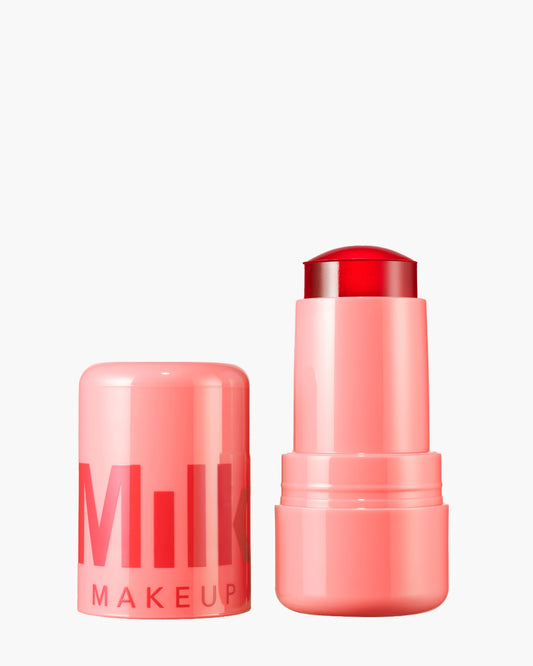
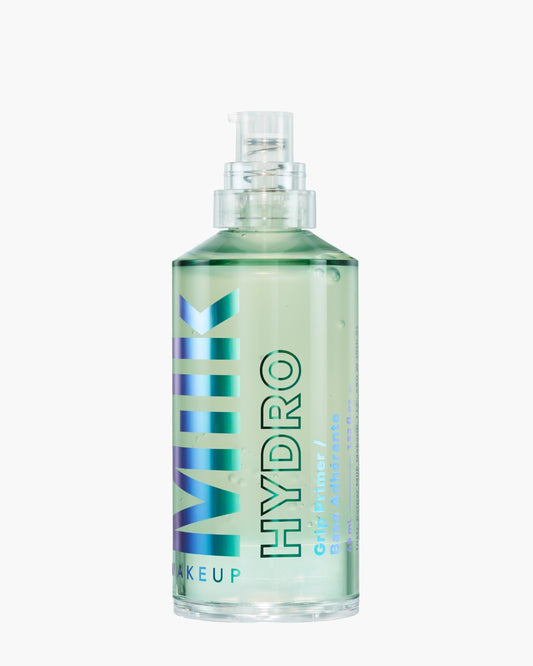
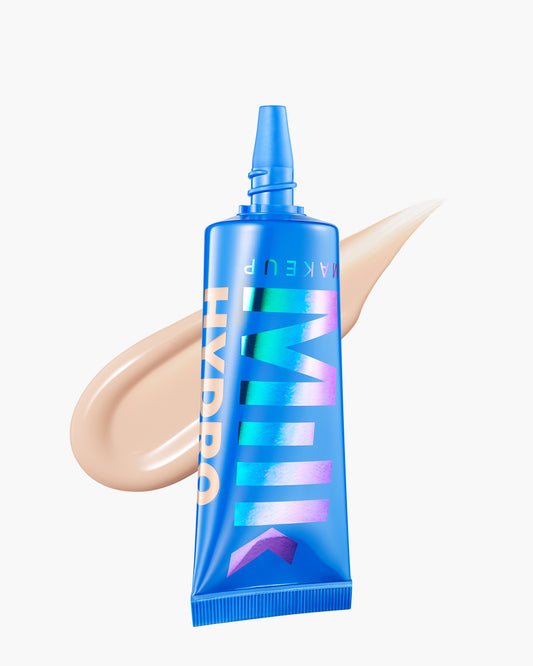
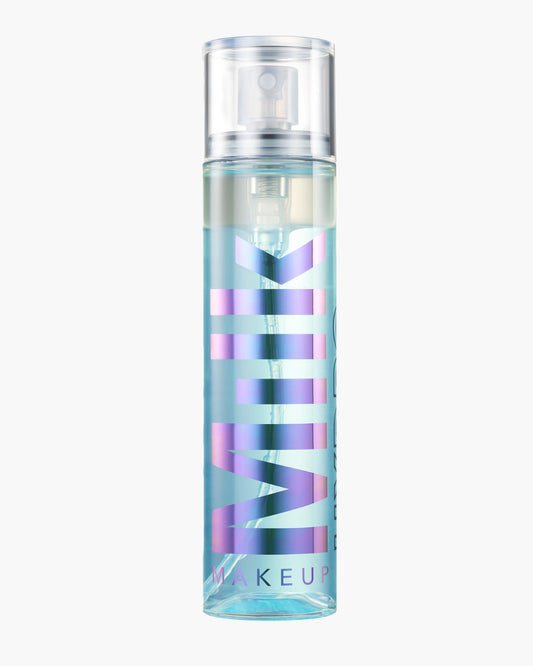
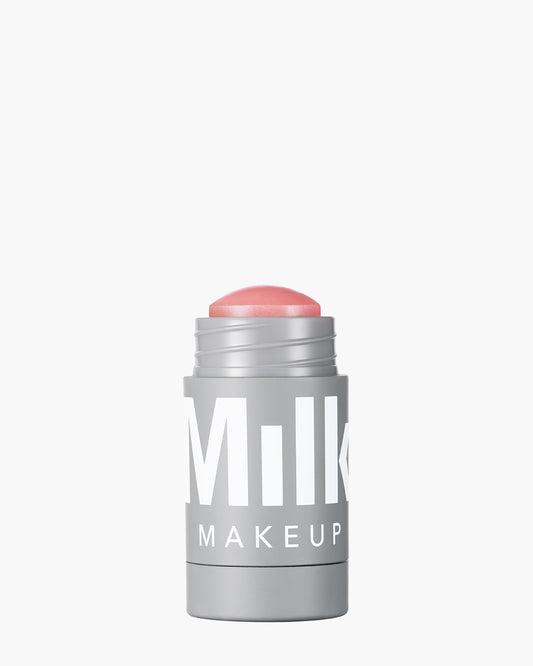

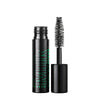
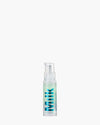


 "
"
